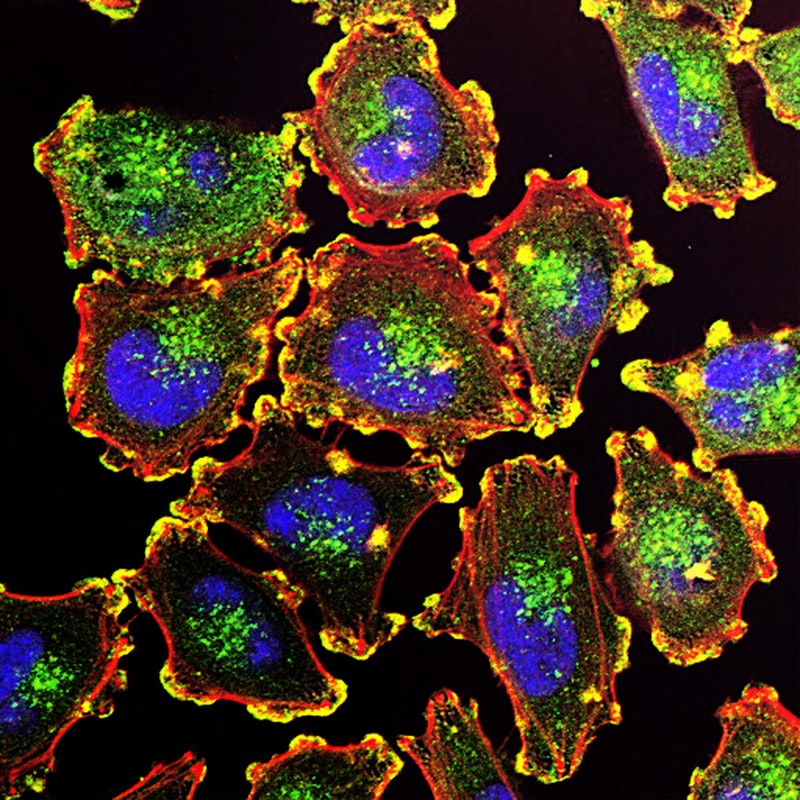Promising signs in early trial for personalised cancer vaccines

Results were presented yesterday (Monday 22 June) from a phase one study which could potentially halt the growth of cancer cells using vaccines based on unique information taken from their own tumour.
Professor Tom Powles from St Bartholomew’s Hospital as well as researchers from The Royal Marsden and The Institute of Cancer Research investigated the vaccine, RO7198457, when given in combination with the immunotherapy drug atezolizumab (Tecentriq), in 144 patients who had advanced cancers.
To produce the vaccine, samples of the tumour and blood are taken and run through an algorithm. This finds a part of the tumour that the body would recognise as ‘foreign’ and uses the information to create a vaccine that is unique for that patient.
When given back to the patient, alongside the immunotherapy, it is hoped the body elicits an immune response, identifying and killing those cancer cells.
They found the personalised treatment was well tolerated, with patients largely experiencing low to moderate side effects. Patients had received several treatments previously, with nearly 40 per cent having had prior immunotherapy.
Cancer types ranged, but included lung, breast, colorectal and melanoma.
Professor Tom Powles, Director of the Barts Cancer Centre at St Bartholomew’s Hospital, said:
"The development of vaccines, specifically designed for individual cancers is a major advance in cancer therapy.
"Targeting cancer specific unique mutational signature is a novel way to fight this disease."
Dr Juanita Lopez, a Consultant Medical Oncologist at the Oak Drug Development Unit at The Royal Marsden NHS Foundation Trust and The Institute of Cancer Research (ICR), explained:
“Many cancers are able to successfully avoid the immune system, and we are only starting to understand the myriad ways in which cancers can do this.
“Because mutations are not shared between cancers, a personalised treatment approach that targets individual tumour neoantigens may be a viable immunotherapeutic strategy for numerous patients with cancer.”
During the induction phase of treatment, patients received one of the different doses of RO7198457 ranging from 15 to 50 micrograms once per week for six weeks; the seventh and eighth doses were administered fortnightly.
Atezolizumab was given on a 21-day cycle and patients received a booster dose of the vaccine during the seventh cycle of atezolizumab, along with a maintenance dose of the vaccine every 24 weeks following the induction phase.
Of the 108 patients who had at least one tumour assessment, nine responded, representing an overall response rate of 8 percent. One patient with colorectal cancer had a complete response, and 53 patients, representing 49 percent of evaluable patients, had stable disease.
Researchers found when they analysed blood samples of 63 patients, the immune system in 73 per cent had been activated in response to the vaccine.
The clinical response rate was therefore low overall but did provide researchers with information for future research.
Researchers are looking to expand this area of investigation, to understand potential for patients with earlier stage cancers, and with a larger patient population.
The study was funded by Genentech and BioNTech. Limitations of the study include a small sample size. Furthermore, due to the single-arm nature, the study results cannot be directly compared with atezolizumab monotherapy.
